Projects
Integrated software toolbox for secure IoT-to-Cloud computing

Duration
36 months
Jan. 2024 - Dec. 2026
Sponsor
European Commission.
Keywords
Description
The INTACT (Integrated Software Toolbox for Secure IoT-to-Cloud Computing) project is a Horizon Europe initiative (2024–2027) focused on enhancing cybersecurity across the IoT-to-Cloud continuum. Its primary objective is to develop an integrated software toolbox that offers predictive cybersecurity sensing, optimization, and management services. By employing digital twins—virtual replicas of physical systems—INTACT enables the simulation and analysis of cyber threats in isolated environments, allowing for proactive risk mitigation without impacting real-world operations. The project emphasizes scalability and interoperability through the use of open standards and APIs, including the Eclipse Connector, and incorporates AI automation across all toolbox processes. INTACT's approach aims to maximize infrastructure security and data privacy while minimizing effects on computing capacity, energy consumption, and operational costs, thereby supporting secure and efficient operations in sectors such as telecommunications, healthcare, and smart cities.
Montimage plays a pivotal role in the INTACT project. The company leads Task 3.4, focusing on the development of an AI-enabled Attack Emulator integrated within the INTACT Toolbox. This emulator leverages deep learning techniques, including Generative Adversarial Networks (GANs), to train Intrusion Detection Systems (IDSs) and simulate realistic attack scenarios such as zero-day exploits, Advanced Persistent Threats (APTs), and Man-in-the-Middle (MITM) attacks. Additionally, Montimage contributes to the integration of AI-powered Penetration Testing services, enhancing simulation realism with a Modified Network Graph Model (MNPT) that incorporates social engineering elements. These contributions are key deliverables for the project, aimed at strengthening the cybersecurity posture of IoT-to-Cloud infrastructures.
Uptake of Innovative Security-as-a-Service Solutions
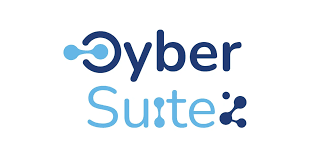
Duration
36 months
Jan. 2024 - Dec. 2026
Sponsor
European Commission.
Keywords
Description
The CyberSuite project is a three-year initiative (2024–2026) funded by the EU's Digital Europe Programme, aiming to revolutionize cybersecurity for small and medium-sized enterprises (SMEs) by offering a comprehensive Security-as-a-Service (SECaaS) platform. Recognizing the unique challenges SMEs face—such as limited cybersecurity expertise and resources—CyberSuite seeks to simplify the design, deployment, and management of cybersecurity services. The platform integrates a suite of interoperable tools, including penetration testing, threat detection, and incident response mechanisms, all accessible through a user-friendly digital marketplace. By leveraging outcomes from previous EU-funded research, CyberSuite ensures that SMEs can adopt advanced cybersecurity solutions without the need for extensive technical knowledge. The project also emphasizes the importance of building a robust cybersecurity ecosystem by engaging stakeholders through training programs, awareness campaigns, and collaborative networks, ultimately fostering a security-first culture among European SMEs.
Montimage plays a pivotal role in the CyberSuite project by developing innovative monitoring and security management frameworks for critical telecommunications infrastructures. Leveraging its expertise in penetration testing tools and Cyber Threat Intelligence services, Montimage contributes to enhancing the security posture of the CyberSuite platform. This involvement ensures that small and medium-sized enterprises (SMEs) can access robust, AI-driven cybersecurity solutions tailored to their needs.
Through its participation, Montimage aids in the development of tools that facilitate the specification of user requirements based on intent, streamlining the automation of security and performance management in closed-loop systems. Additionally, Montimage's contributions to the CyberSuite ecosystem support the creation of a comprehensive suite of tools, simplifying cybersecurity management and enhancing security, privacy, and trustworthiness for SMEs .
Evolution in Security and Privacy for 6G Networks
Duration
48 months
Jan. 2025 - Dec. 2028
Sponsor
European Commission.
Keywords
Description
ENSURE-6G develops and validates autonomous, privacy-preserving security solutions for next-generation B5G/6G networks through a structured Design Science Research approach. It begins by surveying current threats—especially AI/ML-driven vulnerabilities—and defining comprehensive requirements aligned with 6G standards and GDPR. The project then builds AI/ML-powered, explainable security architectures, legal frameworks, and business models, followed by rigorous validation via simulations (Mininet, NS3, MATLAB), formal verification (BAN logic, AVISPA), and four use-case–driven testbeds (eHealth, IoT, Telco). By fostering staff exchanges and collaborative networks, ENSURE-6G aims to accelerate knowledge transfer, position the EU at the forefront of 6G security and privacy, and deliver scientific, economic, and societal impact.
Montimage contributes its open-source monitoring and intrusion detection framework to ENSURE-6G, providing DPI-based traffic inspection, business activity monitoring, and ML/formal-model–driven anomaly detection tools. Their expertise ensures comprehensive, end-to-end visibility and threat detection across 6G use-case testbeds.
advaNced cybErsecurity awaReness ecOsystem for SMEs

Duration
36 months (Dec 2023 - Nov 2026)
Sponsor
Keywords
Description
The NERO (advaNced cybErsecurity awaReness ecOsystem) project is a 36-month initiative launched in December 2023 under the EU’s Digital Europe Programme. Its primary goal is to enhance cybersecurity resilience among small and medium-sized enterprises (SMEs) across Europe. Recognizing that SMEs are particularly vulnerable to sophisticated cyber threats—including AI-driven disinformation, malware, and social engineering—NERO aims to bridge the cybersecurity awareness gap by providing tailored, accessible solutions. The project delivers an integrated ecosystem comprising five interrelated frameworks, including a Cyber Immunity Toolkit Repository, a Cyber Resilience Programme, and gamified cybersecurity awareness training modules. These resources are accessible through a user-friendly digital marketplace, empowering SMEs to build a security-first culture without requiring extensive technical expertise. NERO's effectiveness is being validated through real-world use cases in the healthcare, finance, and transportation sectors, ensuring practical applicability and impact.
Montimage, a Paris-based SME specializing in cybersecurity and network monitoring, plays a pivotal role in the NERO project. As a cybersecurity expert and solution provider, Montimage contributes its Monitoring and Management Tool (MMT) and machine learning techniques to enhance the detection and response to cyber threats. The company also offers Cyber Threat Intelligence aggregation and sharing capabilities, as well as Cyber Range-type training to improve cybersecurity skills among SMEs. Montimage's involvement extends to the development of detection, mitigation, and prevention techniques, along with evasion avoidance strategies. Furthermore, Montimage actively participates in training initiatives and dissemination and exploitation activities, leveraging its experience from previous European research projects to ensure the successful implementation and adoption of NERO's solutions.
Situation Aware enabled Cyber Resilience for Dispersed, Heterogenous Cyber Systems
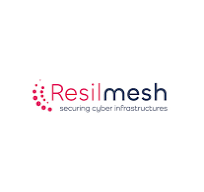
Duration
36 months
Oct. 2023 - Sept. 2026
Sponsor
European Commission.
Keywords
Description
ResilMesh is an EU-funded initiative that builds a unified Security Orchestration and Analytics Platform Architecture (SOAPA) to provide real-time cyber situational awareness across distributed, heterogeneous infrastructures. It combines existing security controls, open-source components, and AI-driven algorithms within ten work packages, validating its capabilities through diverse use cases—such as renewable energy SCADA, smart manufacturing robotics, regional civil infrastructure, and additional open-call scenarios. By aggregating data end-to-end, enhancing CSIRT awareness of asset dependencies, and embedding automated telemetry, threat intelligence processing, and playbook-based mitigation, ResilMesh enables organizations to manage complexity, improve interoperability, and flexibly place security controls across both IT and OT environments.
Montimage EURL contributes its expertise in network, application, and service testing and monitoring—particularly around functional, performance, and security dimensions—to the ResilMesh platform. By providing its open-source security monitoring and management framework, the Montimage team enhances context awareness and end-user trust within SOAPA. They will customize and integrate their tools (leveraging AI/ML and change-point detection) to fit ResilMesh’s diverse use cases across IT/OT environments, ensuring reliable, secure, and cost-effective monitoring of complex systems such as 5G/IoT and Industry 4.0 deployments.
COGNitive Industries for smart MANufacturing
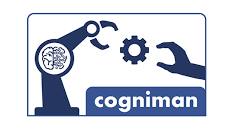
Duration
48 months
Jan. 2023 - Dec. 2026
Sponsor
European Commission.
Keywords
Description
The COGNIMAN (COGNitive Industries for smart MANufacturing) project is a four-year Horizon Europe initiative (2023–2026) aimed at transforming complex, labor-intensive manufacturing processes into intelligent, adaptive, and human-centric systems. With a €11 million budget and a consortium of 16 partners across seven European countries, COGNIMAN focuses on integrating advanced technologies such as simulations, digital twins, AI, machine learning, robotics, and autonomous systems into a modular toolbox designed for flexible and sustainable smart manufacturing.
The project targets manufacturing sectors that are traditionally difficult to automate, including glass fiber production, precision machining of large parts, additive manufacturing of medical implants, and high-temperature metal production. COGNIMAN's approach involves developing next-generation sensing systems for real-time monitoring, establishing robust and explainable machine learning methods for adaptive control, and creating safe, collaborative robotics that work seamlessly alongside humans.
A key aspect of COGNIMAN is its human-centric design philosophy, which emphasizes ergonomic, intuitive, and context-aware human-machine interactions. The project also aims to establish a network of open-access pilot sites supported by Digital Innovation Hubs to facilitate data and knowledge sharing, thereby accelerating the adoption of cognitive manufacturing solutions across Europe.
Through these efforts, COGNIMAN aspires to enhance the competitiveness of the European manufacturing sector, reduce environmental footprints, and pave the way for a new era of smart, sustainable, and efficient manufacturing processes.
Montimage, a French SME specializing in cybersecurity and network monitoring, plays a pivotal role in the COGNIMAN project by contributing its expertise in artificial intelligence (AI), machine learning (ML), and digital twin technologies to advance smart manufacturing processes.
Within COGNIMAN, Montimage focuses on developing AI-driven solutions for real-time monitoring and predictive analytics. Notably, the company is involved in creating systems for early defect detection in glass fibre production, aiming to reduce waste and enhance production efficiency. By leveraging data provided by industry partners, Montimage trains AI algorithms to identify defects with high precision, thereby minimizing production interruptions and improving overall product quality.
Additionally, Montimage collaborates on the development of the COGNIMAN architecture, contributing to the integration of advanced technologies such as digital twins, simulations, and cognitive robotics. This integration is essential for creating a modular toolbox that facilitates flexible and sustainable smart manufacturing.
Montimage also participates in standardization efforts within the project, ensuring that the developed solutions align with industry standards and can be effectively implemented across various manufacturing environments.
Through these contributions, Montimage supports COGNIMAN's overarching goal of transforming complex, labor-intensive manufacturing processes into intelligent, adaptive, and human-centric systems, thereby enhancing the competitiveness of the European manufacturing sector.
6G-Enabled end-to-end time-critical applications
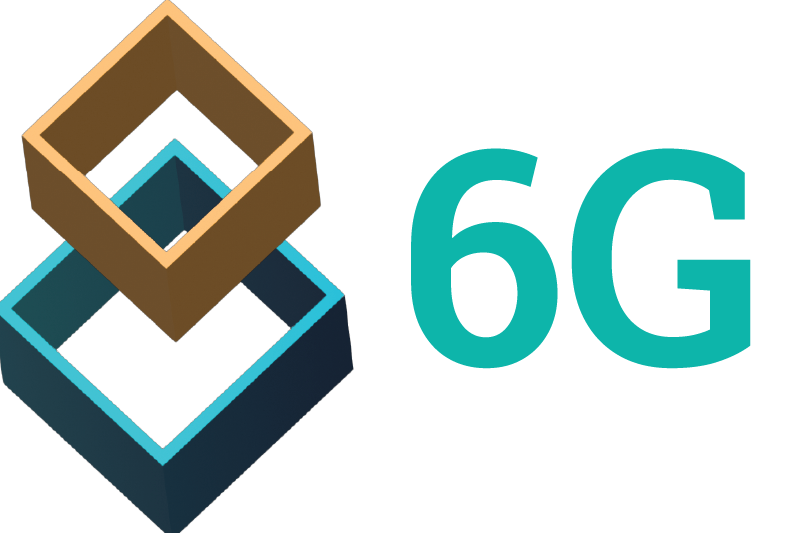
Duration
33 months
Jan. 2023 - Oct. 2025
Sponsor
European Commission.
Keywords
Description
The DETERMINISTIC6G project is a Horizon Europe-funded initiative focused on developing a robust end-to-end (E2E) communication architecture for future 6G networks, emphasizing deterministic performance—ensuring predictable latency and reliability. Coordinated by Ericsson and KTH Royal Institute of Technology, the consortium includes industry leaders like Orange, ABB, and innovative SMEs such as Montimage, alongside academic institutions like the University of Stuttgart and Silicon Austria Labs.
A primary objective of DETERMINISTIC6G is to integrate wired deterministic communication standards, such as Time Sensitive Networking (TSN) and Deterministic Networking (DetNet), with the inherently variable nature of wireless 6G networks. This integration aims to support time-critical applications across sectors like industrial automation, healthcare, and transportation. To achieve this, the project is developing new 6G architectures, AI/ML-based latency prediction models, and advanced time synchronization solutions. Additionally, it leverages digital twins to anticipate and manage network performance variations, ensuring consistent service quality.
Security is a cornerstone of the project, with a focus on designing security-by-design frameworks that encompass edge computing and support for protocols like OPC UA. By addressing these challenges, DETERMINISTIC6G aims to lay the groundwork for 6G networks capable of meeting the stringent requirements of future cyber-physical systems.
Montimage contributes to DETERMINISTIC6G by providing a security framework that includes real-time traffic monitoring, analysis, and remediation mechanisms. Their solution encompasses components such as network data collectors, a security analytics engine, a decision engine, and a security orchestrator, all designed to support local and end-to-end security management in time-sensitive networks.
Dynamic business continuity of critical infrastructures on top of adaptive multi-level cybersecurity
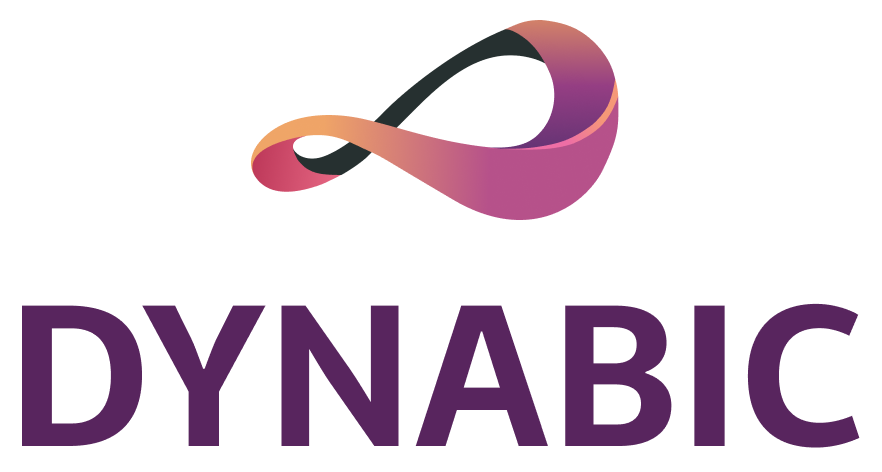
Duration
36 months
Dec. 2022 - Nov. 2025
Sponsor
European Commission.
Keywords
Description
The DYNABIC project (Dynamic Business Continuity of Critical Infrastructures on Top of Adaptive Multi-Level Cybersecurity) is an EU-funded initiative aimed at enhancing the resilience and business continuity of European critical infrastructures against advanced cyber-physical threats. By integrating digital twins, AI-driven threat prediction, and automated response strategies, DYNABIC enables real-time risk assessment and mitigation. The project focuses on four key sectors: energy (EV charging stations), transportation, telecommunications (5G networks), and healthcare services, developing a comprehensive framework to ensure the robustness of essential services.
Montimage is a French SME founded in 2004 that brings together experienced researchers and telecom engineers. Its core business is developing tools for monitoring and testing networks and services for the analysis of functional, performance and security; and improving context awareness and trust. Its flagship open-source framework (MMT) allows the capture of telecom packets and structured info for performing traffic and business activity analysis, and detecting/mitigating security attacks in 5G, IoT…
It uses DPI, statistics and ML to classify events, analyse behaviour, and determine root cause of anomalies. Its open-source tool (5Greplay.org) allows generating normal 5G traffic and attacks, and its Software Defined Radio-based 5G-in-a-Box solution allows rapidly creating a highly secure 5G network for Industry 4.0 applications.
INtent-driven exposure and automated service FULfillment and AssuraNCE
Duration
44 months
May. 2022 - Dec. 2025
Sponsor
BPI France.
Keywords
Description
The INFLUENCE project is a French collaborative research initiative aimed at simplifying and automating access to dedicated 5G network slices for businesses of all sizes, including small and medium-sized enterprises (SMEs). Funded under the France Relance plan and coordinated by Nokia, the project brings together partners such as Orange, Montimage, Université Gustave Eiffel, PSHA, and Augmented Acoustics.
INFLUENCE focuses on developing an intent-based networking framework that allows companies to express their service requirements in non-technical language. These requirements are then automatically translated into network configurations, enabling the deployment of customized 5G slices with guaranteed service levels (SLAs). The project leverages artificial intelligence and machine learning to optimize network management, ensuring both performance and security.
The project's innovations are validated through two primary use cases: an industrial scenario at the Paris-Saclay Hardware Accelerator, demonstrating benefits like performance monitoring and predictive maintenance; and an event-based scenario with Augmented Acoustics, enhancing live audience experiences through immersive audio services.
By facilitating dynamic, end-to-end 5G services tailored to specific business needs, INFLUENCE aims to accelerate digital transformation across various sectors, strengthen national and European technological sovereignty, and lay the groundwork for future 6G developments.
Montimage is a French SME specializing in cybersecurity and network monitoring, particularly in 5G and IoT environments. In the INFLUENCE project, Montimage focuses on developing intent-based tools that enable businesses, including SMEs, to specify their network needs without deep technical knowledge. These tools automate the deployment of 5G private networks, ensuring both performance and security through closed-loop management. Additionally, Montimage contributes to the development of Service Level Agreements (SLAs) that incorporate security and performance metrics, facilitating the adoption of 5G slicing technologies by smaller enterprises.
Trustworthy Artificial Intelligence for Cybersecurity Reinforcement and System Resilience
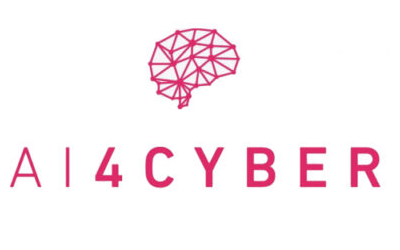
Duration
36 months
Oct. 2022 - Aug. 2025
Sponsor
European Commission
Keywords
Description
The AI4CYBER project is a Horizon Europe-funded initiative. It aims to develop a next-generation cybersecurity ecosystem leveraging artificial intelligence (AI) and big data technologies to enhance the robustness, resilience, and autonomous response capabilities of critical systems against advanced and AI-powered cyberattacks
AI4CYBER focuses on creating an ecosystem of AI-driven cybersecurity services, including:
- AI4VULN: An open-source solution for automatic identification and verification of vulnerabilities in code using AI-enhanced symbolic execution.
- AI4FIX: An open-source end-to-end vulnerability fixing solution supporting Java, bringing automatic unit testing of proposed fixes.
- AI4FIDS: A high-performance detection solution for advanced and AI-powered attacks in distributed environments, preserving data privacy.
- AI4SIM: An advanced cyberattack simulation tool capable of simulating AI-powered attacks against IT, OT, and IoT systems.
- AI4CTI: An advanced solution offering AI-powered Cyber Threat Intelligence to enhance detection and threat simulation tools.
- AI4TRIAGE: AI-based root cause analysis and alert triage to prioritize events to focus on the response.
- AI4SOAR: AI-powered Security Orchestration, Automation, and Response solution capable of deploying multiple security controls across different system layers.
- AI4DECEIVE: Deception and honeypot solutions to mislead attackers and gather intelligence.
The project validates its solutions through demonstrators in the energy, banking, and healthcare sectors.
Montimage is a French SME founded in 2004 that brings together experienced researchers and telecom engineers. Its core business is developing tools for monitoring and testing networks and services for the analysis of functional, performance and security; and improving context awareness and trust. Its flagship open-source framework (MMT) allows the capture of telecom packets and structured info for performing traffic and business activity analysis, and detecting/mitigating security attacks in 5G, IoT… It uses DPI, statistics and ML to classify events, analyse behaviour, and determine root cause of anomalies. Its open-source tool (5Greplay.org) allows generating normal 5G traffic and attacks, and its Software Defined Radio-based 5G-in-a-Box solution allows rapidly creating a highly secure 5G network for Industry 4.0 applications.